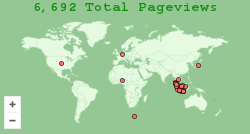Model of food security through integrated farming for financial efficiency in Aisyiyah Boarding School Bandung
DOI:
https://doi.org/10.63088/7fkakr96Keywords:
Food security, Food independence, Integrated Farming, Financial efficiency, Sustainable farmingAbstract
Purpose: The activity aimed provide knowledge in utilizing limited land in creating food independence through integrated farming and livestock with the ultimate goal of creating efficiency in financial management of the Aisyiyah Boarding School Bandung
Methods: The methods used include FGD, socialization, training, field visits, and evaluations
Results: Through FGD methods, socialization, training, field visits, and evaluations, students and Islamic boarding school managers gained practical skills in the field of agribusiness. This program is able to increase the availability of food in Islamic boarding schools, but also create sustainable business opportunities. This model is expected to be adopted by other Islamic boarding schools to strengthen the food independence and economy of Islamic boarding schools in Indonesia.
Conclusions: The implementation of the integrated farming model at the Aisyiyah Boarding School has had a positive impact on the efficiency of Islamic boarding school financial management, food security, and economic independence.
Downloads
References
Amalia, T. A., Adibrata, J. A., & Setiawan, R. R. (2022). Strategi Ketahanan Pangan di Masa Pandemi Covid-19: Penguatan Potensi Desa Melalui Sustainable Farming di Indonesia. Jurnal Sosial Ekonomi Pertanian, 18(2), 129–140. https://journal.unhas.ac.id/index.php/jsep/article/view/13733
Arwin, A., Sugiharto, V., & Nisa, A. K. (2023). Optimalisasi Edupreneurship di Pondok Pesantren untuk Membentuk Santripreneur Berdaya Saing dan Mandiri di Era Milenial. Fitrah: Journal of Islamic Education, 4(1), 123–137.
Azadi, H., Ghazali, S., Ghorbani, M., Tan, R., & Witlox, F. (2023). Contribution of small‐scale farmers to global food security: a meta‐analysis. Journal of the Science of Food and Agriculture, 103(6), 2715–2726.
Beyene, F., Senapathy, M., Bojago, E., & Tadiwos, T. (2023). Rural household resilience to food insecurity and its determinants: Damot Pulasa district, Southern Ethiopia. Journal of Agriculture and Food Research, 11, 100500.
Chai, Q., Nemecek, T., Liang, C., Zhao, C., Yu, A., Coulter, J. A., Wang, Y., Hu, F., Wang, L., Siddique, K. H. M., & Gan, Y. (2021). Integrated farming with intercropping increases food production while reducing environmental footprint. Proceedings of the National Academy of Sciences, 118(38).
Dasgupta, S., Meisner, C., & Wheeler, D. (2007). Is Environmentally Friendly Agriculture Less Profitable for Farmers? Evidence on Integrated Pest Management in Bangladesh. Review of Agricultural Economics, 29(1), 103–118.
Herawati, N., Kusumawati, A., & Bekam, D. (2024). Efektivitas Penggunaan Sistem Pertanian Terpadu dalam Meningkatkan Kesejahteraan dan Kemajuan Ekonomi di Pedesaan. Journal Of Top Agriculture, 2(2), 87–92.
M.S. Gill, J.P. Singh, & K.S. Gangwa. (2001). Integrated farming system and agriculture sustainability. Indian Journal of Agronomy, 54(2), 128–139.
Nasir, B., Lakani, I., Najamudin, N., Sabariyah, S., Lasmini, S. A., Asdar, M. S., Astawa, I. P. S., Akbar, I., & Tiana, I. K. D. (2021). Development of Integrated Farming Businesses Based on Zero Waste Agriculture in Parigi Moutong Regency. Journal of Community Practice and Social Welfare, 1(2), 28–39.
Otten, J. J., Averill, M. M., & Spiker, M. L. (2023). Food security and food access during the COVID‐19 pandemic: Impacts, adaptations, and looking ahead. Journal of Parenteral and Enteral Nutrition, 47(S1), S11–S15.
Paramesh, V., Ravisankar, N., Behera, U., Arunachalam, V., Kumar, P., Solomon Rajkumar, R., Dhar Misra, S., Mohan Kumar, R., Prusty, A. K., Jacob, D., Panwar, A. S., Mayenkar, T., Reddy, V. K., & Rajkumar, S. (2022). Integrated farming system approaches to achieve food and nutritional security for enhancing profitability, employment, and climate resilience in India. Food and Energy Security, 11(2).
Ridwan, W., Supiana, S., & Zaqiah, Q. Y. (2022). Optimalisasi Pemanfaatan Lahan Berbasis Pertanian Terpadu di Pondok Pesantren Ma’ruful Hidayah. JIIP - Jurnal Ilmiah Ilmu Pendidikan, 5(10), 4565–4570.
Rinanda, T., Hernawaty, H., Pelawi, P., Hastalona, D., Maisari, U., & Efrizah, D. (2022). Sosialisasi Pemanfaatan Lahan Agar Produktif, Indah dan Menghasilkan Benefit di Pesantren Darussalam Guntur Batubara. Journal Liaison Academia and Society, 2(4), 51–56.
Singh, V. K., Rathore, S. S., Singh, R. K., Upadhyay, P. K., & Shekhawat, K. (2020). Integrated farming system approach for enhanced farm productivity, climate resilience and doubling farmers’ income. The Indian Journal of Agricultural Sciences, 90(8), 1378–1388.
Su, F., Liu, Y., Chen, S.-J., & Fahad, S. (2023). Towards the impact of economic policy uncertainty on food security: Introducing a comprehensive heterogeneous framework for assessment. Journal of Cleaner Production, 386, 135792.
Downloads
Published
Issue
Section
License
Copyright (c) 2025 Teti Rahmawati, Herma Wiharno, Amir Hamzah, Sifa Siti Fathonah, Dina Nurochmah

This work is licensed under a Creative Commons Attribution 4.0 International License.
Authors retain copyright and grant the journal right of first publication with the work simultaneously licensed under a Creative Commons Attribution 4.0 International License that allows others to share the work with an acknowledgement of the work's authorship and initial publication in this journal.





